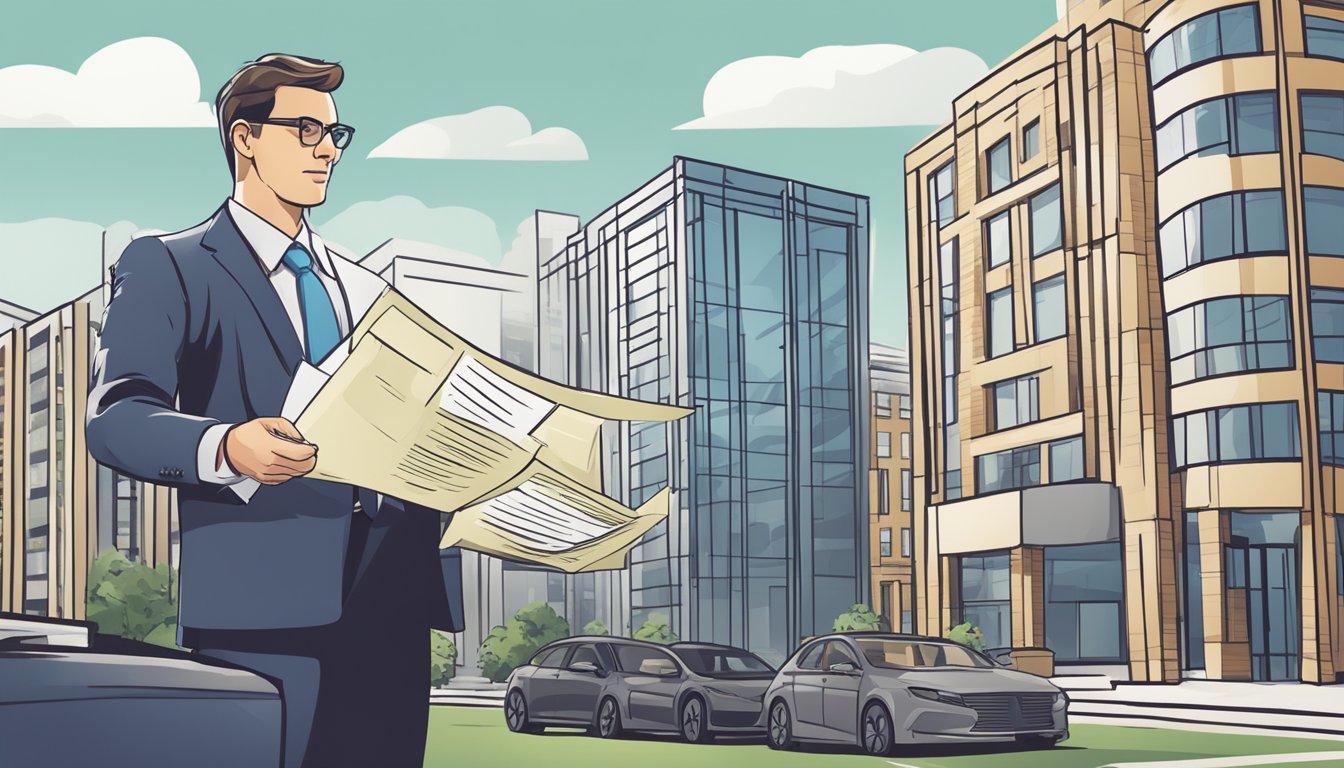If you’re a small business owner in the UK, you know that finding the right financing option can be a challenge. One option that may be worth considering is a business loan secured against property. This type of loan allows you to borrow money using your business property as collateral, which can make it easier to qualify for financing and get a lower interest rate.

Secured business loans are a type of financing where you put up collateral to secure the loan. In the case of a loan secured against property, you’re using your business property as collateral. This means that if you default on the loan, the lender can seize your property to recover their losses. Because the loan is secured, lenders are typically more willing to lend larger amounts of money and offer lower interest rates.
If you’re considering a business loan secured against property, it’s important to understand how the process works and what you need to do to qualify. This article will provide an overview of secured business loans and how they work, as well as tips for applying for a loan secured against property. We’ll also answer some frequently asked questions to help you make an informed decision about whether this type of financing is right for your business.
Key Takeaways
- Business loans secured against property can be a good option for small business owners who need to borrow money.
- These loans are secured by your business property, which can make it easier to qualify for financing and get a lower interest rate.
- To apply for a loan secured against property, you’ll need to provide documentation proving ownership of the property and demonstrating your ability to repay the loan.
Understanding Secured Business Loans

If you’re looking to secure a loan for your business, you may be considering a secured loan. A secured business loan is a loan that requires collateral to be put up against the loan. In this section, we’ll go over the essentials of secured loans, the types of collateral for business loans, and the differences between secured and unsecured business loans.
Essentials of Secured Loans
When you take out a secured business loan, you’re putting up personal or business assets as collateral for the loan. This can include real estate, equipment, or inventory. The lender will use these assets as security for the loan, and if you default on the loan, the lender can take possession of the assets to recoup their losses.
Secured loans often come with lower interest rates than unsecured loans, but they can be riskier for the borrower. If you’re unable to make your loan payments, you could lose your collateral.
Types of Collateral for Business Loans
The collateral you put up for a secured business loan can be personal assets or business assets. Personal assets can include your home or other property, while business assets can include equipment, inventory, or accounts receivable.
Real estate is a common form of collateral for secured business loans. If you own property, you may be able to use it as collateral for a loan. Equipment can also be used as collateral, especially if it’s valuable and in good condition.
Comparing Secured and Unsecured Business Loans
When comparing secured and unsecured business loans, it’s important to consider the risks and benefits of each. Secured loans can be easier to qualify for and often have lower interest rates, but they come with the risk of losing your collateral if you default on the loan.
Unsecured loans don’t require collateral, but they often have higher interest rates and stricter requirements for qualification. If you’re unable to make your loan payments, the lender can take legal action against you, but they won’t be able to take possession of your assets.
In conclusion, secured business loans can be a good option if you have valuable assets to put up as collateral. However, it’s important to weigh the risks and benefits before taking out a loan. Make sure you can afford to make your loan payments and that you understand the consequences of defaulting on the loan.
Applying for a Business Loan Secured Against Property

If you’re looking to secure a business loan, you may want to consider a loan that is secured against your property. This type of loan is often easier to qualify for and can offer more favourable interest rates than unsecured loans. In this section, we’ll go over what you need to know to apply for a business loan secured against property.
Eligibility and Qualifications
To be eligible for a business loan secured against property, you’ll need to have a property that you can use as collateral. You’ll also need to have a good credit history, consistent revenue, and the necessary documentation to prove your eligibility. This documentation may include tax returns, financial statements, a business plan, and any necessary business licenses.
The Application Process
The application process for a business loan secured against property is similar to that of other types of loans. You’ll need to provide documentation to prove your eligibility, and the lender will evaluate your application and determine whether to approve your loan. The lender may also require a personal guarantee or a UCC lien on your property to secure the loan.
Understanding the Terms and Repayment Options
When you take out a business loan secured against property, you’ll need to understand the terms and repayment options. These may include the length of the loan, the interest rate, and any fees associated with the loan. You may also have the option to choose longer repayment terms or flexible repayment options.
It’s important to shop around and compare lenders to find the best loan for your needs. Traditional lenders such as banks and credit unions may offer business loans secured against property, as well as online lenders. Some lenders may also offer SBA loans, business term loans, business lines of credit, commercial real estate loans, or even business credit cards.
In summary, a business loan secured against property can be an excellent option for startups and small business owners who need funding. By understanding the eligibility requirements, application process, and terms and repayment options, you can make an informed decision about whether this type of loan is right for you.
Frequently Asked Questions

How can you leverage your property to obtain a startup business loan?
If you own a residential or commercial property, you can use it as collateral to obtain a secured business loan. This means that the lender will have a legal claim on your property if you fail to repay the loan. By leveraging your property, you can secure a loan for your startup business at a lower interest rate than an unsecured loan.
What are the typical interest rates for small business loans secured by property?
The interest rates for secured business loans vary depending on the lender, the amount of the loan, and the duration of the loan. However, you can expect to pay interest rates as low as 0.6% per month with a secured business loan.
What criteria must your business meet to qualify for a loan secured against property?
To qualify for a secured business loan, your business must have a good credit history, consistent revenue, and the necessary documentation. You will also need to pledge a residential or commercial property as collateral. The value of the property will determine the amount of the loan you can secure.
How does a secured business loan calculator assist you in planning your finances?
A secured business loan calculator can help you determine the amount of loan you can secure based on the value of your property. It can also help you estimate your monthly payments and the total interest you will pay over the duration of the loan. This will assist you in planning your finances and ensuring that you can comfortably repay the loan.
In what scenarios should you consider a secured loan over an unsecured one for your business needs?
If you are a startup business or have a poor credit history, you may find it difficult to secure an unsecured loan. In such cases, a secured loan may be a better option as it allows you to leverage your property to secure the loan. Additionally, secured loans usually have lower interest rates than unsecured loans.
What are the advantages of opting for the best secured business loans available on the market?
The best secured business loans offer lower interest rates, longer repayment periods, and higher loan amounts than unsecured loans. They also offer flexibility in terms of how you can use the loan funds. By opting for the best secured business loans available on the market, you can secure the funding you need to grow your business without putting your personal assets at risk.




